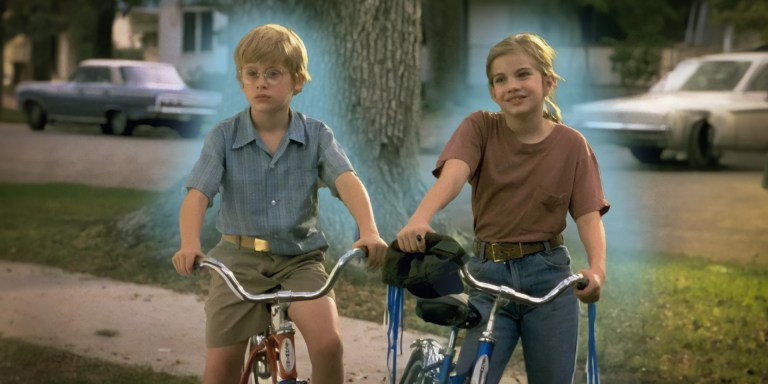
You used to be good at making the best of a bad situation. When you were younger, you received Penny Lane’s Almost Famous speech like it was gospel, your eyes just as bright and big and ever-happy as hers: “If you never take it seriously you never get hurt, if you never get hurt you always have fun, and if you ever get lonely just go to the record store and visit your friends.”
That logic made sense to you, the logic of self-determined happiness. You thought you’d always try to be honest and fun, entertaining and charismatic. You decided to be a friend, to be someone the girls—or anyone really—could turn to when they had problems.
But you? You never wanted to be the girl with problems. You’d deal with your own problems yourself, you thought. You’d never take it seriously—you’d never let your problems interfere with having a good time.
Things at home weren’t great, so you never spent time at home. You took pride in the way you could manage your sadness by aggressively seeking out happiness: any time you felt sad, you went to a friend’s house, or went to the movies, or played your favorite CD, or took a walk, or went anywhere at all, really. You never sat still and stayed home to think about how you felt—”why would I do that?” Staying home meant staying sad. Sitting still meant giving up.
Going out meant getting better.
In middle school and high school, “going out” just means being out of the house. In college and in your 20’s, “going out” can mean one of two things: doing exactly what you want or doing what is expected of you.
For a perpetual people pleaser—a “never take it seriously” girl—the difference between what you want and what is expected of you becomes murky. Wants and needs are smudged, expectations and reality become one. You need sleep. You want to have fun. You want to sleep. You need to go out and get stuff off your mind. You need, you want, you go out, you see friends, you have good times, you keep going.
You get sad. You look sad, people ask and you tell people why you’re sad. You keep telling them. You want to stop talking but you can’t. You can stop talking, though, if you go to the bathroom and lock yourself in the stall at the party and cry. You slide the metal piece into it’s place, you’re locked in. You cry. You think about who you used to be as a teenager: the going to friends houses, listening to other people’s problems, being the fun one. You would have never left the party to cry in the bathroom. Who the hell are you? You feel like you’ve changed for the worse.
You think you used to be someone who people could count on for laughs and smiles, someone who could manage her problems without burdening others with them, someone who did what they wanted.
There’s an ugly truth here.
You were never someone who did what they wanted.
You just did what you thought you had to do to make other people happy, to be smiley and friendly and get along with everyone. To never make enemies, to never get caught up in drama. To never bring up your personal problems in public situations.
What you really always wanted was to stay home, to deal with your problems there, to have a resolution that made you feel happy afterwards. What you wanted was to be the person who was happy—not in spite of their problems, but because they dealt with their problems and became stronger. You wanted to tell someone the truth and have them accept you and tell you it wasn’t your fault, or that it was your fault and it was okay anyway because you are not the sum total of your mistakes.
You took everything too seriously because you never took your own feelings seriously.
You need to know this: you are the sum total of everything you do and say, of how those things make you think about yourself, of the time you spend on things. You are not the sum total of: your successes, mistakes, nights out, nights in, people who like you, people who don’t, or anything that can be measured.
The only real measurement for your happiness is how you feel—how can you be happy if you’re constantly avoiding that?
If you spend all your time dealing with the issues of others, those issues will consume you. You will belong to everybody else.
If you spend time addressing your own feelings—taking them seriously, dealing with them, using them to fuel your pursuits, learning why they exist and that they aren’t just an ugliness that needs to be buried—then you will belong to yourself.
If you always take it seriously, you’ll never have fun. But if you always take yourself seriously—your own happiness, your life, your goals, your meaning, all of it—then you don’t need to be good at making the best of a bad situation, because you will be your best self, and that is more than enough. You’re everything. ![]()





